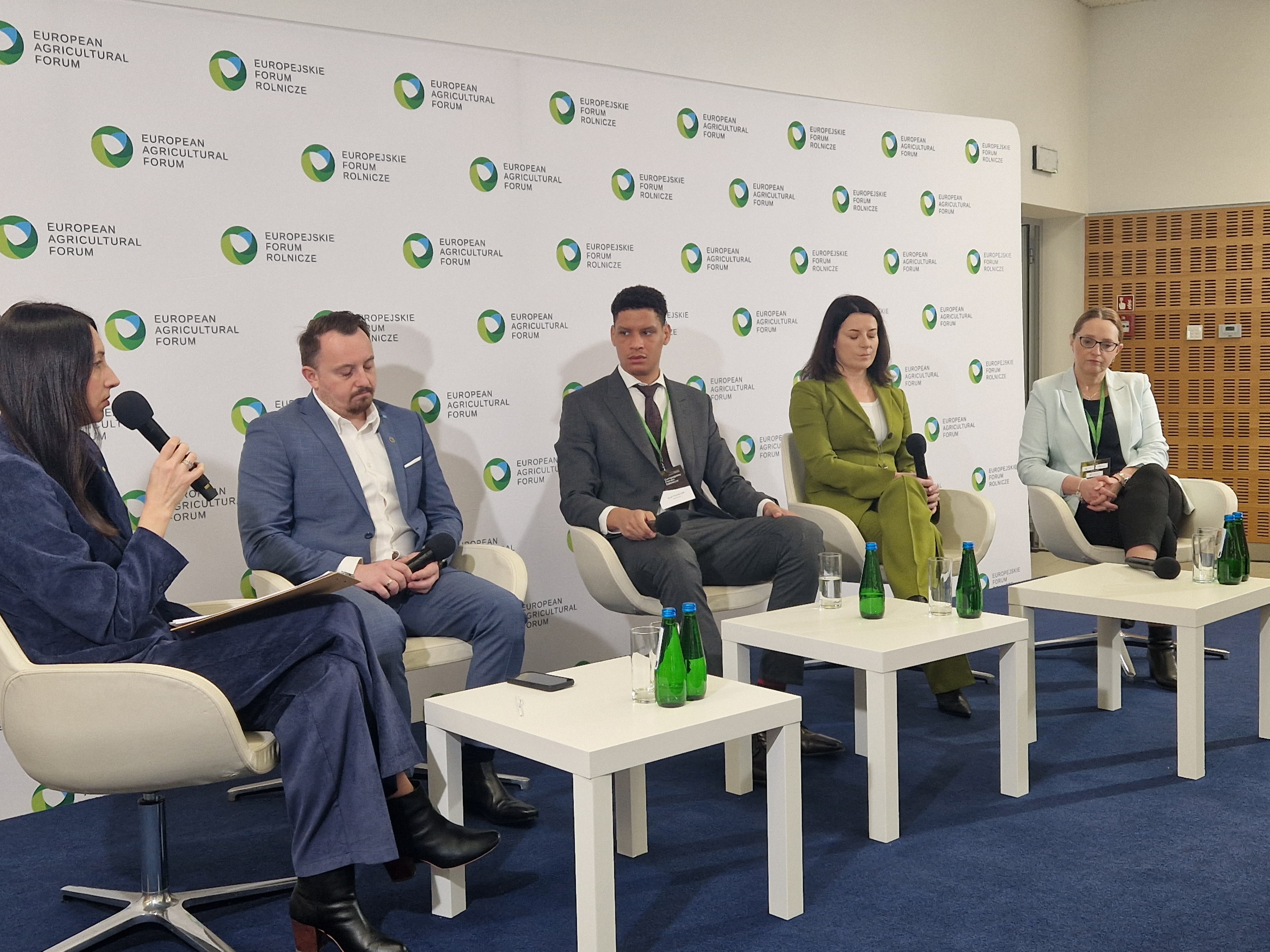In the case of regenerative practices, it is too rarely said that they are aimed at maintaining profitability. By properly cultivating and gathering information about his workshop, which is the soil, a farmer can reduce costs and be prepared for market turbulence.
These are the conclusions drawn from the debate held by representatives of the scientific community, business and politics during the European Agricultural Forum, which took place in Jasionka near Rzeszów.
– We have to realize that a farmer is an entrepreneur susceptible to huge market turbulences. Let’s look at the economic situation of farms today – when we have rising production costs, much less certainty when it comes to the sales market. A farmer must look for an alternative source of income – emphasizes Eryk Frontczak – Head of Carbon Farming at Heavy Finance, one of the participants of the debate during which the directions of development of sustainable agriculture were discussed. – Introducing any changes to the farm that may be associated with some element of risk – e.g. local ostracism in the case of introducing no-tillage cultivation, must be associated with a direct financial benefit that will minimize this risk for the farmer – added Frontczak. According to the specialist, in short, regenerative agriculture is nothing more than agri-environmental practices aimed at maximizing the binding of organic carbon in the soil, and carbon certificates themselves are simply direct financial rewards for the farmer for each ton of CO² removed from the atmosphere. – This is de facto a cash transfer from the industry, which is the emitter, to the farmer, who has the potential to bind carbon. We have to realize that in the case of our country alone, we have 10 million hectares of arable land, which means the potential to sequester up to 20 million tons of CO².
We are talking about a piece of the Polish economy that can become low-emission precisely through the Polish farmer. After all, we know how much pressure there has been on this in recent years – noted the representative of HeavyFinance – a company that generates so-called carbon credits – confirming the binding of carbon dioxide in the soil. The first money for farmers participating in the program is to flow in this year.
We need to know more about soil
– Over the last 30 years, we have lost about 30% of soil productivity.
In Poland we also have problems, especially in the central belt, every year we observe desertification – emphasized Anna Danylczenko from the Grunt od Nowa Foundation. According to the expert, due to the fact that the resource, which is soil, is limited, greater needs caused by the growing world population mean greater profit on each hectare that remains fertile and productive.
– I wouldn’t like to present a catastrophic vision here, because we are here to show,
that change is possible, but if you look at global trends, it is clear that over the next 10 years we will have to welcome more people to the same territory due to climate migrations, Dynalczenko emphasized.
The quality of Polish soil needs to be improved
When it comes to soils in our country, most of the territory is seriously acidic. They also have a very low humus content. This is indicated by all the research conducted for years – emphasized Anna Dynalczenko, amazed by the lack of understanding of the sense of practices that are positive for the soil. – Liming is super important for Poland. According to research, just by obtaining the right pH, you can increase yields by 7-20% – explained the expert, giving a clear example: On a field of 10 and 1000 ha, we can generate the same profit.
We need to stand out
– We will never equal the production costs of our neighbors from the east, so we have to stand out in some way. For this we need data that will serve farmers on the one hand, and industry and processors on the other – emphasized Adam Baucza – President of the Terra Nostra Agricultural Development Foundation. – We need aggregated data. This is where development should begin, this is the first step – systematic collection of data from various farms – added Baucza. The specialist also drew attention to the basic pathology that we are dealing with in our country – the number of active farmers who support themselves solely from running farms. – We have 1.4 million farms, but in reality 400 thousand farmers – he noted.
Farmers need and want data
Eryk Frontczak from HeavyFinance pointed out that his company, which deals with carbon footprint reduction certification, is obliged to collect the information mentioned by his predecessors.
– This is undoubtedly an advantage of this business model. The farmer receives access to data that he would often have no motivation to collect – noted Frontczak, mentioning that this includes a summary of fertilization, crop rotation, and efficiency from each hectare.
– We have to collect data because business requires it. On the other hand, it later also comes back to the farmer, who can use it in his own way – noted Frontczak, emphasizing the great interest of farmers in this topic. – When it comes to the content of nutrients in given plots or the level of rainfall in the region, the farmers we cooperate with are very interested in this. It allows them to optimize their business – concluded the HeavyFinance representative.

